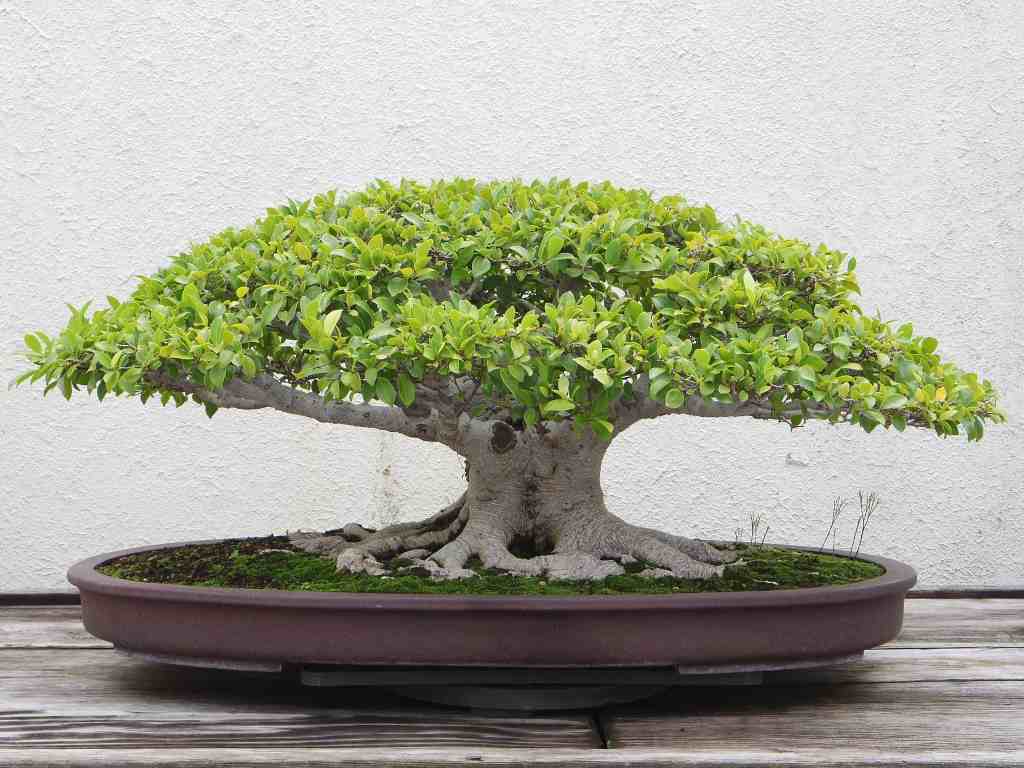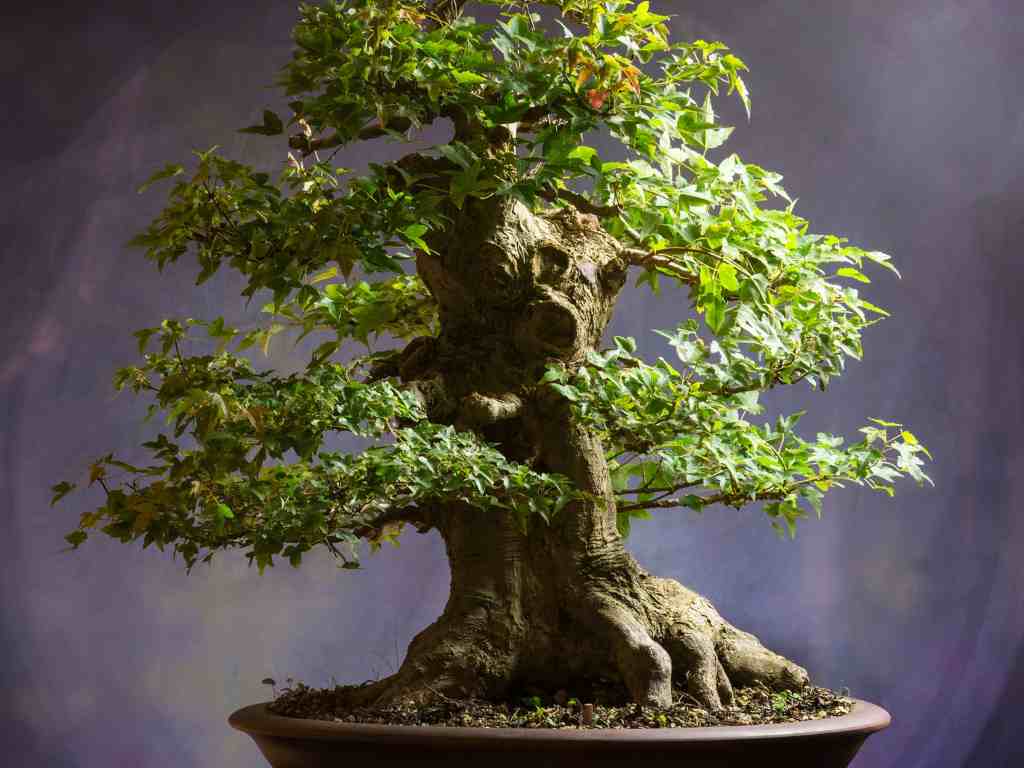Have you ever wondered how fast do bonsai trees grow? This is a question that I have been asked many, many times. Truth is that there is no straightforward answer to this question, unfortunately. Keep reading below to find out why. You will also discover what are the best ways that you can speed up the growth rate of a bonsai tree.
Bonsai trees are trees in miniature. The word literally means “tree in a tray.” The goal of bonsai is to create a living sculpture of a full-sized tree in a small container.
Trees grown as bonsai are generally kept small through years of pruning and shaping. They’re kept small by design, not by the fact that they’re growing in a pot.
How Fast Do Bonsai Trees Grow:
The answer to the question, how fast do bonsai trees grow, is an interesting one. If you want your bonsai tree to grow quickly, it’s helpful to understand why they don’t grow as fast as other plants.
The reason is when you’re growing a bonsai tree, you are training it rather than allowing it to grow on its own. This makes it easier for you to make the necessary changes that will force your tree to grow in the way you desire.
Most bonsai trees will grow anywhere from an inch to six inches per year. Some varieties can grow much faster, while others are very slow growers. Keep your bonsai tree in a pot that is the right size so that it grows at a rate that’s healthy for it.
However, this doesn’t mean that you can’t have a healthy and beautiful bonsai tree if you know what steps to take.
When growing any plant, the most important thing is that you give it the right environment and care. The same holds true with bonsai trees.
There are a few things that you can do to fasten up the bonsai growing speed:

Younger Trees Work The Best:
Trees that are purchased at a young age tend to grow much faster than trees purchased as adults. Typically, a Bonsai tree will double or even triple in size within the first year after it is planted.
So whenever you have a choice choose the younger tree to grow as a bonsai.
Choose Fast-Growing Trees:
After the first year, most Bonsai trees will only grow approximately half an inch every two years. Some species grow faster while others grow slower.
So if you want your bonsai to grow faster, choose a fast-growing tree to bonsai. Here are some of the fastest-growing trees:
- Hawthorn
- Japanese maple
- Hackberry
- Juniper
- Japanese zelkova
- Japanese boxwood
- Red pine
- Black pine
Thin Fibrous Roots Are The Key:
Trees grow fastest when their roots get full access to nutrients and water. The more roots your bonsai have the more nutrients and water it can absorb, resulting in quicker growth.
For bonsai taproot has very little significance as most of the nutrient collection is done by the thin shallow roots.
To grow bonsai fast, you must let off most of the taproot and focus on having tons of thin fibrous roots around the base.
Learn more about bonsai root pruning in this post.
Make The Trunk Thicker:
A thick trunk ensures the longevity of the bonsai tree. Work on thickening the trunk as soon as possible. Bonsai trees have a natural tendency to grow long trunks and branches first before putting on any real girth at all.
There are several trunk-thickening methods that I discussed in my earlier post, try the one that suits you the best.
The trunk serves as an anchor for the branches and as an avenue for water and nutrients to reach the leaves. So a thicker trunk ensures effortless execution of both of the tasks.
Give Your Bonsai Proper Nutrients:
The most important thing you can do is make sure your bonsai is getting all of the nutrients it needs. This means feeding your Bonsai tree every two weeks during spring and summer, and every six weeks during fall and winter.
Feed your bonsai with a fertilizer that has the proper balance of NPK. This will help promote new growth. Look for bonsai nutrients that are organic, as synthetic fertilizers may burn the roots of your tree.

Use A Bigger Pot:
Growing bonsai trees in a bigger pot is an easy way to make them grow faster. Growing in a small pot for too long makes it harder for your bonsai to grow the roots and trunk that you want.
It also makes it hard for the air to reach all of the parts of the plant, which can cause problems like mold.
Bonsai trees should be able to spread out in the soil and get all the nutrients that are nearby. If they’re crammed into a tiny pot, they won’t be able to do this, and the tree will grow slowly or not at all.
As you transplant your bonsai tree into a larger pot, its roots are able to grow more quickly.
Protect The Bonsai From Pest And Diseases:
Protecting your bonsai from pests and diseases will ensure the best chance for healthy growth. Bonsai trees are naturally vulnerable to many insects and diseases due to their small size and inability to fend for themselves in nature.
You should definitely address these vulnerabilities; otherwise, bonsai plants can become sickly or even die prematurely.
Remember the bonsai will grow fastest when it is healthy and disease-free.
How Long Do Bonsai Trees Live:
Bonsai trees have different lifespans, depending on their species. Some live as long as 60 years, while others live only a few decades. The general rule of thumb is that bonsai trees live as long as they are taken care of properly. A neglected bonsai tree will not live as long as a pruned and watered one.
The climate where your bonsai lives have a lot to do with how long it will live. In a very arid climate with little rain or humidity, a bonsai probably won’t live as long as one in a humid environment.
The bonsai tree needs moisture to survive, and dry air will likely kill the bonsai before it reaches its usual life expectancy.
It also depends on how often you water your tree and how well you care for it once it’s home. Overwatering can cause your bonsai to die quickly, while underwatering may encourage disease and rot.
It’s important to use good judgment when watering your bonsai, especially during hot and humid.
I hope you have learned a lot about the growth of a bonsai tree and how to speed up the growth rate. How fast does a bonsai tree grow? In the end, it depends on the kind of bonsai tree, and how your take care of the tree.
If you like the post don’t forget to share it with others. You can read more interesting stuff about growing bonsai here.